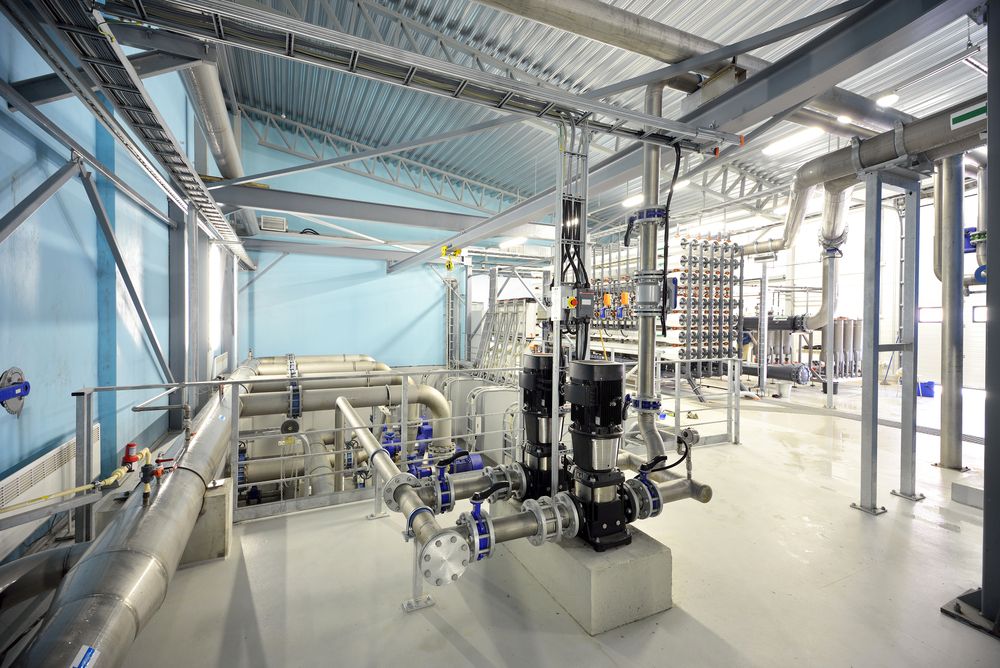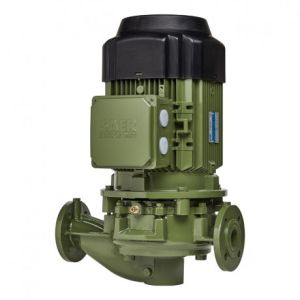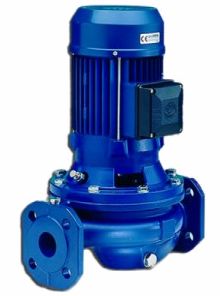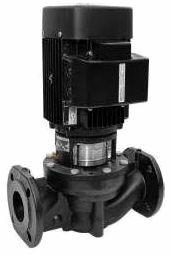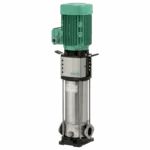In-line pumps
In-line pumps are pumps that are located in the pipeline and are used to move liquids without having to open the pipeline.
Our customers rate us 8,6  based on 136 reviews
based on 136 reviews
What are inline pumps and
How do they work?
In-line pumps are centrifugal pumps designed to move liquids in a straight line, with the inlet and outlet on the same line. Unlike traditional pumps with a curved inlet and outlet pipe, inline pumps are installed directly in the pipeline, making them easier to assemble and maintain.
The operation of an in-line pump is similar to that of a centrifugal pump: a rotor rotates inside a housing and creates a suction force that draws the liquid through the inlet. The liquid is then pushed out by centrifugal force and flows through the exhaust pipe.
Inline pumps are widely used in industrial applications such as water treatment, chemical processing and HVAC systems. Their easy installation, high reliability and efficiency make them a popular choice for moving large volumes of liquid in a variety of industries.
The versatility of (industrial) inline pumps
Industrial in-line pumps are an important part of many industrial processes. These pumps are designed to move liquids in a straight line, with the inlet and outlet on the same line. They are suitable for a wide range of applications, from water treatment and cooling water circulation to chemical processing and oil and gas extraction.
One of the main advantages of in-line pumps is their compact size and ease of installation. They can be installed directly in the pipeline, eliminating the need for additional space for pump installation. This makes inline pumps particularly suitable for applications where space is limited.
Other advantages include their high efficiency, reliability and low maintenance costs. In-line pumps are also easy to maintain as they can be accessed without dismantling the pipeline.
In short, industrial in-line pumps are a versatile and reliable solution for moving fluids in various industrial applications. Their compact size, efficiency and low maintenance costs make them a popular choice for companies looking for a cost-effective and reliable way to move fluids.
The importance of control valves in in-line pump systems
Control valves play a critical role in in-line pump systems. These valves are used to control and regulate the flow of fluids, which is essential for the proper functioning of the system. Control valves can be used to control the pressure, temperature and flow rate of fluids, optimizing pump system performance.
A well-designed control valve system can improve the efficiency of an in-line pump system and extend the life of the pumps. Control valves help to control the pressure and temperature of the fluid in the system, reducing the chance of damage to the pumps and other equipment. In addition, control valves can be used to adjust the flow rate of fluids to the specific requirements of the process, optimizing system performance.
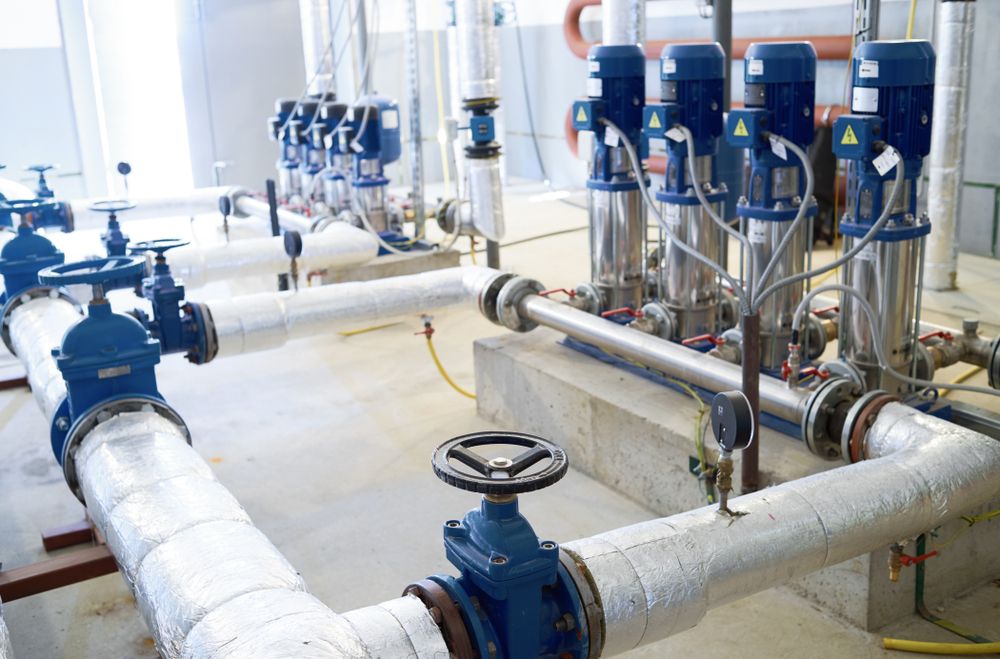
ADVICE AND SALES
THE BEST POSSIBLE SOLUTION FOR YOUR APPLICATION
There are many different types of pumps and just as many applications, such as a submersible, circulation or well pump. Due to this diversity of pumps, it is wise to be well informed about what type of pump is required before you purchase one or have it overhauled. The IPG team with various pump experts can always advise you on the best possible solution for your application and can also support you with the purchase and installation of the pump.
IPG has strong relationships with various pump manufacturers and can therefore give you good advice in purchasing many types and brands of pumps. For example, the Industrial Pump Group is the Dutch importer of SAER and official dealer of Lowara, Grundfos and Seepex, among others.
HVAC systems
The benefits of using in-line pumps
In-line pumps are commonly used in HVAC systems to move cooling and heating fluids. They are an efficient and reliable solution for moving large volumes of liquid through a building.
One of the main advantages of in-line pumps in HVAC systems is their compact size and ease of installation. They can be installed directly in the pipeline, eliminating the need for additional space for pump installation. This makes inline pumps particularly suitable for applications where space is limited.
Other advantages include their high efficiency, reliability and low maintenance costs. In-line pumps are also easy to maintain as they can be accessed without dismantling the pipeline.
In addition, in-line pumps are often equipped with variable speed control, which can optimize the energy consumption of the HVAC system and save costs. This makes them a popular choice for companies looking for energy saving solutions.
Looking for the right inline pump?
The Industrial Pump Group is dedicated to supplying high quality and reliable pumps and providing expert advice to customers in a variety of industries, including the water treatment industry. Our experts have years of experience in designing and selecting the best pumps for specific applications, and they have extensive knowledge of the latest technologies and innovations in the industry.
Need help selecting the right pump? The experts of IPG are ready for you, feel free to contact us at: (0251) 222 566 or info@industrialpumps.nl.
